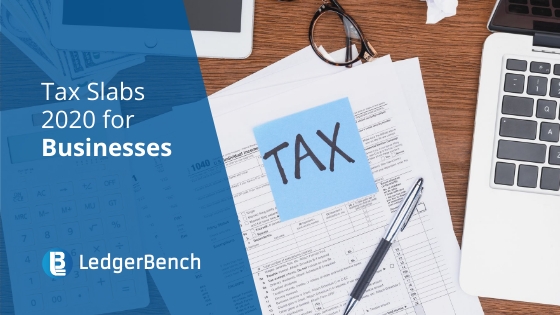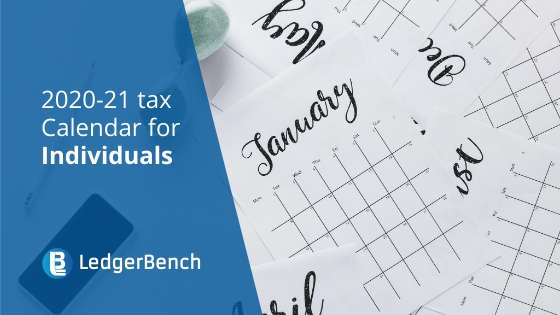
Accountants, Important Dates, Tax, Tax Calender
Covid-19 has brought the economy to a halt. The global Lockdown have made it almost impossible to churn the vehicles of the economy and its revival in the future is also something that is dependent on how fast we can fight the pandemic. The IRS has come to the taxpayer’s rescue and has come out with a series of benefits, protective regulations and tax relaxations to ease everyone during these times of uncertainty.
Predominantly, all the tax deadlines that were pending for the financial year 2019 and were falling from April 1- July 15, have been extended to July 15, 2020. A list of relieving measures have since been taken to reduce stress and financial burdens during Covid-19. Additionally, individuals who still cannot adhere to the July 15th Deadline can again ask for extensions from the Department of Treasury and the IRS.
Who All Are Eligible for the New Tax Deadlines?
The new tax deadlines are applicable to all taxpayers, whether they are individuals, freelancers or filing for self-employment taxes. These umbrella relieving measures are applicable to everyone. There is no need to file for the acceptance of this relaxation of deadlines. All the taxpayers are automatically eligible for these new IRS tax relaxation deadlines.
You May Also Read – Ways to Maximize your Tax Benefits During Covid-19
Does This Relaxation Depend on All the Taxes?
Almost all the IRS tax deadlines that fell under the umbrella dates of April 1- July 15 have been an extended relaxation date till July 15. Although, it is important to note that there are differences in how the different states have responded to these IRS deadlines. Here are those below:
| Arizona, Arkansas, Connecticut |
Announced plans to end this year’s regular legislative session. |
| Arizona, Connecticut |
Announced Special Sessions to Be Held at the End of the Year. |
| California, Delaware, Kansas, Maryland |
New Revenue Forecasts Have Been Announced in These States. |
| Colorado, Minnesota |
April sales tax deadlines have been extended to May. |
| Arkansas |
The Budget for the Financial Year 2021 has been Proposed. |
| Illinois |
Legislative Administration Has Further Been Postponed. |
| Kansas |
Veto Power Has Been Postponed Indefinitely. |
| Missouri |
Spending in the Financial Year 2020 Has Been Frozen. |
| New Jersey |
Bill Has Been Enacted to Codify the Income Tax Extension. |
| Oklahoma |
The Board of Equalization has Officially Announced Revenue Shortfalls, and Will Make Use of Any Rainy Budget to Fill the Gaps. |
| Vermont |
Legislators Will Not Be Filing the Budget For Financial Year 2021 Until August or September. |
| Virginia |
Biennial Budget for Financial Year 2021, 2022 Has Been Put in Effect. |
| Washington |
Taxpayers Who Are Applying For a Tax Waiver, May Avoid the Payment of Cannabis and Alcohol Excise Taxes. |
| District of Columbia |
FY 2021 Budget to be Presented on May 12. The Rent Has Been Frozen On Commercial Tenants as Well. |
(All Information Updated As Of April 23, 2020)
How to File For Extension Beyond July 15, 2020?
If you need to file for an extended relaxation that goes beyond the July 15th extension, then you need to follow the steps below.
1. You can seek an extension by filing Form 4868.
2. Businesses who need additional time need to file the form 7004.
Wrapping Up:
The IRS and the Department of Treasury are taking multiple measures to ease citizens and businesses during these times of uncertainty. Tax Relaxation Deadlines to July 15th 2020, is one of the measures to help relax this economic slowdown. The IRS continually comes out with recent updates in the changes that are occurring and any new relief measures that are being taken. You can click here to know more.

Tax Calender
Tax Brackets for the Year 2020-21 for Businesses
Corporate income taxes are applicable in 44 states. Every state has its own tax bracket. The remaining four states are Nevada, Ohio, Texas, and Washington. They forgo corporate income taxes but instead impose gross receipts taxes on businesses. So the tax bracket you fall in and the tax rate applied on your income can vary on the basis of the state your business is located in.
| Taxable Income |
Tax rate |
| More than $0 |
6.5% |
| Taxable Income |
Tax rate |
| $0 -$25,000 |
0.0% |
| More than $25,000 |
2.0% |
| More than $49,000 |
3.0% |
| More than $74,000 |
4.0% |
| More than $99,000 |
5.0% |
| More than $124,000 |
6.0% |
| More than $148,000 |
7.0% |
| More than $173,000 |
8.0% |
| More than $198,000 |
9.0% |
| More than $222,000 |
9.4% |
| Taxable Income |
Tax rate |
| More than $0 |
4.9% |
| Taxable Income |
Tax rate |
| $0 -$3,000 |
1.0% |
| More than $3,000 |
2.0% |
| More than $6,000 |
3.0% |
| More than $11,000 |
5.0% |
| More than $25,000 |
6.0% |
| More than $100,000 |
6.5% |
| Taxable Income |
Tax rate |
| More than $0 |
8.84% |
| Taxable Income |
Tax rate |
| More than $0 |
4.63% |
| Taxable Income |
Tax rate |
| More than $0 |
7.5% |
| Taxable Income |
Tax rate |
| More than $0 |
8.7% |
| Taxable Income |
Tax rate |
| More than $0 |
4.458% |
| Taxable Income |
Tax rate |
| More than $0 |
5.75% |
| Taxable Income |
Tax rate |
| $0 – $25,000 |
4.4% |
| More than $25,000 |
5.4% |
| More than $100,000 |
6.4% |
| Taxable Income |
Tax rate |
| More than $0 |
6.925% |
| Taxable Income |
Tax rate |
| More than $0 |
9.5% |
| Taxable Income |
Tax rate |
| More than $0 |
5.5% |
| Taxable Income |
Tax rate |
| $0 – $25,000 |
6% |
| More than $25,000 |
8% |
| More than $100,000 |
10% |
| More than $250,000 |
12% |
| Taxable Income |
Tax rate |
| $0 – $50,000 |
4% |
| More than $50,000 |
7% |
| Taxable Income |
Tax rate |
| More than $0 |
5% |
| Taxable Income |
Tax rate |
| $0 – $25,000 |
4% |
| More than $25,000 |
5% |
| More than $50,000 |
6% |
| More than $100,000 |
7% |
| More than $200,000 |
8% |
| Taxable Income |
Tax rate |
| $0 – $350,000 |
3.5% |
| More than $350,000 |
7.93% |
| More than $1,050,000 |
8.33% |
| More than $3,500,000 |
8.93% |
| Taxable Income |
Tax rate |
| More than $0 |
8.25% |
| Taxable Income |
Tax rate |
| More than $0 |
8% |
| Taxable Income |
Tax rate |
| More than $0 |
6% |
| Taxable Income |
Tax rate |
| More than $0 |
9.8% |
| Taxable Income |
Tax rate |
| $0 – $5,000 |
3% |
| More than $5,000 |
4% |
| More than $10,000 |
5% |
| Taxable Income |
Tax rate |
| More than $0 |
4% |
| Taxable Income |
Tax rate |
| More than $0 |
6.75% |
| Taxable Income |
Tax rate |
| $0 – $100,000 |
5.58% |
| More than $100,000 |
7.81% |
| Taxable Income |
Tax rate |
| More than $0 |
7.7% |
| Taxable Income |
Tax rate |
| $0 – $50,000 |
6.5% |
| More than $50,000 |
7.5% |
| More than $100,000 |
9.0% |
| More than $1,000,000 |
10.5% |
| Taxable Income |
Tax rate |
| $0 – $500,000 |
4.8% |
| More than $500,000 |
5.9% |
| Taxable Income |
Tax rate |
| More than $0 |
6.5% |
| Taxable Income |
Tax rate |
| More than $0 |
2.5% |
| Taxable Income |
Tax rate |
| $0 – $25,000 |
1.41% |
| More than $25,000 |
3.55% |
| More than $50,000 |
4.31% |
| Taxable Income |
Tax rate |
| More than $0 |
6% |
| Taxable Income |
Tax rate |
| $0 – $1,000,000 |
6.6% |
| More than $1,000,000 |
7.6% |
| Taxable Income |
Tax rate |
| More than $0 |
9.99% |
| Taxable Income |
Tax rate |
| More than $0 |
7% |
| Taxable Income |
Tax rate |
| More than $0 |
5% |
| Taxable Income |
Tax rate |
| More than $0 |
6.5% |
| Taxable Income |
Tax rate |
| More than $0 |
4.95% |
| Taxable Income |
Tax rate |
| $0 – $10,000 |
6% |
| More than $10,000 |
7% |
| More than $25,000 |
8.5% |
| Taxable Income |
Tax rate |
| More than $0 |
6% |
| Taxable Income |
Tax rate |
| More than $0 |
6.5% |
| Taxable Income |
Tax rate |
| More than $0 |
7.9% |
| Taxable Income |
Tax rate |
| More than $0 |
8.25% |
Having a clear idea of your particular tax bracket and the tax rate that is going to be applied on your income plays an important role in helping you understand your financial situation. With these detailed tables for tax slabs for Financial year 2020-21, we have tried to make things simpler for you.

Tax Calender
Tax Brackets for Year 2020-21 for Individuals
The federal income tax rate is not going to change much in the financial year 2020. It is somewhat similar to what it was in the financial year 2019. To give you a clearer idea, we have mentioned the income tax slabs and their respective tax rates for 20-21.
| Tax Rate |
Taxable Income |
| 10% |
$0 to $9,875 |
| 12% |
$9,876 to $40,125 |
| 22% |
$40,126 to $85,525 |
| 24% |
$85,526 to $163,300 |
| 32% |
$163,301 to $207,350 |
| 35% |
$207,351 to $518,400 |
| 37% |
$518,401 or more |
- If Married and Filing Jointly:
| Tax Rate |
Taxable Income |
| 10% |
$0 to $19,750 |
| 12% |
$19,751 to $80,250 |
| 22% |
$80,251 to $171,050 |
| 24% |
$171,051 to $326,600 |
| 32% |
$326,601 to $414,700 |
| 35% |
$414,701 to $622,050 |
| 37% |
$622,051 or more |
- If Married and Filing Jointly:
| Tax Rate |
Taxable Income |
| 10% |
$0 to $9,875 |
| 12% |
$9,876 to $40,125 |
| 22% |
$40,126 to $85,525 |
| 24% |
$85,526 to $163,300 |
| 32% |
$163,301 to $207,350 |
| 35% |
$207,351 to $311,025 |
| 37% |
$311,026 or more |
- If You are Head of Household:
| Tax Rate |
Taxable Income |
| 10% |
$0 to $14,100 |
| 12% |
$14,101 to $53,700 |
| 22% |
$53,701 to $85,500 |
| 24% |
$85,501 to $163,300 |
| 32% |
$163,301 to $207,350 |
| 35% |
$207,351 to $518,400 |
| 37% |
$518,401 or more |
With the help of these detailed tables income tax slabs you can have an exact idea of which bracket you are falling in. Whichever tax bracket you fall in out of these seven, the respective tax rate will be applied to calculate your total annual income tax liability.

Tax Calender
Do not let your income tax deadline sneak up on you. It is always good to keep a check on all the due dates so that you can avoid any late filing penalty charges. For your convenience, we have compiled a list of all important tax due dates and deadlines for 2020.
E-filing Dates:
- January 27: First day to e-file and first IRS acknowledgments of e-filed returns
- February 15: First-day refunds can be issued for taxpayers claiming the Earned Income Tax Credit or the Additional Child Tax Credit.
- June 15: Last day to e-file timely extension request for overseas taxpayers
- July 15: Last day to e-file returns and extensions
- October 15:Last day to e-file returns that received a 6-month extension
Estimated Tax Payment Dates:
- January 15: Make last 2019 estimated tax payment
- April 15: First 2020 estimated tax payment due
- June 15: Second 2020 estimated tax payment due
- September 15: Third 2020 estimated tax payment due
(Due to Covid-19, the due date for tax filing that used to be April 15 has now extended by 3 months. The new deadline is July 15)
Tax Document Dates:
- January 31, 2020: Deadline for employers to file Form W-2s with the Social Security Administration.
- January 31, 2020: Deadline for reporting payments to contract workers on Form 1099-MISC.
You should also know all the federal legal holidays of that year so that if any dues date falls on a holiday then you can do the needful before that date. To make it simple for you here we have listed all the federal holidays in 2020.
Federal Holidays in 2020:
- January 1: New Year’s Day
- January 20: Martin Luther King Jr.’s Birthday
- February 17: Washington’s Birthday
- May 25: Memorial Day
- July 3: Independence Day
- September 7: Labor Day
- October 14: Columbus Day
- November 11: Veterans’ Day
- November 26: Thanksgiving Day
- December 25: Christmas Day

Tax Calender
If you are running a business then it is a usual thing to feel overburdened at times. This happens a lot during the tax season. If you are responsible for taking care of the tax return filing of your business then you have a lot to do without any doubt. And always keeping a check on the income tax deadlines is one of the most important things you need to do. For your convenience, we have listed all the important dates month-wise that you might need to know to be a business owner.
January 2020:
- Wednesday, 1/15/2020:
-
-
- Farmers and fishermen: Pay your estimated tax for 2019. Use Form 1040-ES.
- Pay the final installment of your 2019 estimated tax – use Form 1040-ES.
- Friday, 1/31/2020:
-
- Furnish Forms 1098, 1099 & W-2G to recipients for certain payments during 2019. Employers: Furnish Form W-2 to employees who worked for you in 2019 & File Form W-3, Transmittal of Wage & Tax Statements, with Copy A of Forms W-2 you issued for 2019.
- File Forms 940, 941, 943, 944 and/or 945 if you did not deposit all taxes when due.
- Applicable Large Employers provide Forms 1095-C to full-time employees; For all other providers of Minimum Essential Coverage, provide Forms 1095-B to responsible individuals.
February 2020:
- Monday, 2/10/2020:
-
-
- File Forms 940, 941, 943, 944 and/or 945 if you timely deposited all required payments.
- Tuesday, 2/18/2020:
-
-
- File a new Form W-4 if you claimed exemption from income tax withholding in 2019.
- Furnish Forms 1099-B, 1099-S and certain Forms 1099-MISC to recipients.
- Wednesday, 2/19/2020:
-
-
- Begin withholding on employees who claimed exemption from withholding in 2019 but did not file a W-4 to continue withholding exemption in 2020.
- Friday, 2/28/2020:
-
- File paper Forms 1094-C and 1095-C with IRS if you are an Applicable Large Employer; For all other providers file paper Forms 1094-B and 1095-B with the IRS
- File Form 1096 with information returns, including Forms 1098, 1099 and W-2G for payments made during 2019.
March 2020:
- Monday, 3/2/2020:
-
-
- Farmers and fishermen: File Form 1040 and pay any tax due. However, you have until Apr 15 to file if you paid your 2019 estimated tax payments by Jan 15, 2020.
- Monday, 3/16/2020:
-
-
- Foreign Trusts with a U.S. Owner: File calendar year Form 3520-A. For automatic 6-month extension, file Form 7004.
- Withholding Agent: File Form 1042 for calendar year. Request an automatic 6-month extension of time to file Form 1042 by filing Form 7004.
- Withholding Agent: File Forms 1042-S & furnish copy to income recipient. Request automatic 30-day extension by filing Form 8809. A separate request required for 30-day extension to provide Forms 1042-S to recipients.
- Partnerships: File Form 1065 and furnish a copy of Sch. K-1 to each partner. For automatic 6-month extension, file Form 7004.
- S Corp: File Form 1120S for calendar year & pay any tax due. Furnish copy Sch. K-1 to each shareholder. For automatic 6-month extension, file Form 7004 & deposit estimated tax. File Form 2553 to elect S Corp status beginning with calendar year 2020.
- Partnerships: File Form 8804 and Forms 8805 for a calendar year entity. For automatic 6-month extension, file Form 7004.
- Tuesday, 3/31/2020:
-
- Electronically file Forms W-2G, 1097, 1098, 1094-C, 1094-B, 1095-B, 1099, 3921, 3922 and 8027.
April 2020:
- Wednesday,4/15/2020:
-
-
- Withholding Agent: File Forms 1042-S if you timely requested a 30-day extension. Furnish Forms 1042-S to recipients if you timey requested a 30-day extension.
- Thursday,4/30/2020:
-
- Employers: File Form 941 for the first quarter.
- Deposit FUTA tax owed through Mar if more than $500.
May 2020:
- Monday,5/11/2020:
-
- File Form 941 for the first quarter if you timely deposited all required payments.
July 2020:
- Wednesday,7/15/2020:
-
- Partnerships: File Form 8813 installment payment vouchers and pay any tax due.
- Form 1120-F filers: Due dates can vary for Form 1120-F filers, depending on if the foreign corporation has a U.S. place of business and on the year-end of the foreign corporation. Please see instructions.
- Corporations: File Form 1120 for calendar year and pay any tax due. For automatic 3-month extension, file Form 7004 and deposit first and second installments of estimated tax.
- Partnerships: File Form 8804 and Forms 8805 for a calendar year partnership that keeps its records and books of account outside the United States and Puerto Rico.
- Estates and Trusts: File Form 1041 for calendar year entities and pay any tax due.
- Friday,7/31/2020:
- Deposit FUTA owed through June if more than $500.
- File Form 941 for the second quarter.
August 2020:
- Monday,8/10/2020:
-
- File Form 941 for the second quarter if you timely deposited all required payments.
September 2020:
- Tuesday,9/15/2020:
-
- Corporations: File calendar year Form 1120S if you timely requested a 6-month extension.
- Partnerships: File calendar year Form 8804 and Forms 8805 if you timely requested a 6-month extension.
- Partnerships: File calendar year Form 1065 if you timely requested a 6-month extension.
- Corporations: Deposit the third installment of your 2020 estimated tax.
- Partnerships: File Form 1065 if you timely requested a 6-month extension.
- Partnerships: File Form 8813 quarterly payment voucher and pay any tax due.
October 2020:
- Thursday,10/15/2020:
-
- File calendar year Form 1120 if you timely requested an extension.
November 2020:
- Monday,11/2/2020:
-
-
- Deposit FUTA owed through Sep if more than $500.
- File Form 941 for the third quarter.
- Tuesday,11/10/2020:
-
- File Form 941 for the third quarter if you timely deposited all required payments.
December 2020:
- Tuesday,12/15/2020:
-
- Corporations: Deposit the fourth installment of your 2020 estimated tax.
- Partnerships: File Form 8813 quarterly payment voucher and pay any tax due.





